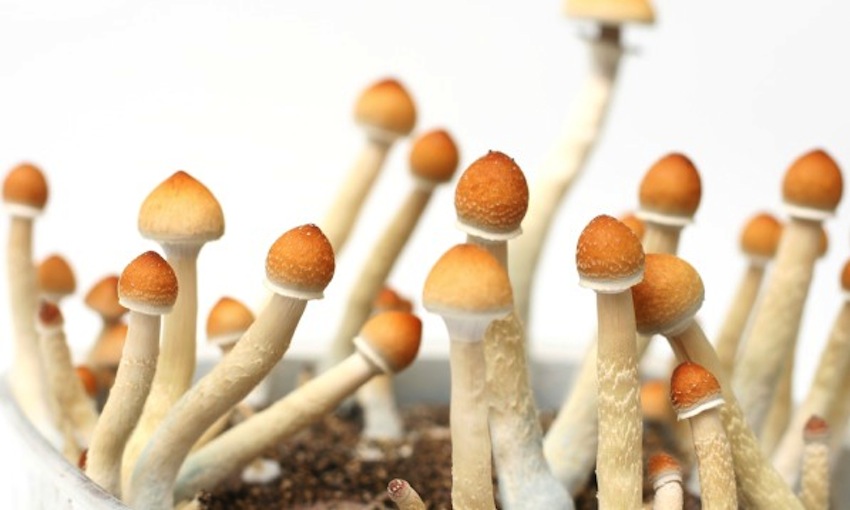
The active ingredient in hallucinogenic mushrooms may erase frightening memories and encourage new brain cell growth in mice, a new study suggests.
Mice given an electric shock, then a low-dose of the hallucinogen psilocybin, lost their fearful response to a sound associated with a painful electric shock much more quickly than mice that didn't receive the drug.
"They stopped freezing; they lost their fear," said study co-author Dr. Juan Sanchez-Ramos, a professor of movement disorders at the University of South Florida.
The findings, published in the June issue of the journal Experimental Brain Research, only apply to mice, but they raise the possibility that low doses of the chemical could one day be used to treat post-traumatic stress disorder (PTSD).
Hippocampus
Past studies found that psilocybin, the active ingredient in magic mushrooms, could induce mystical experiences that could elevate mood, attitude, and behavior and even permanently alter personality for the better. Other studies show that psilocybin decreases brain activity. [Trippy Tales: The History of 8 Hallucinogens]
But Sanchez-Ramos and his colleagues wondered about psilocybin's role in the formation of short-term memories. Because the ingredient binds to a receptor in the brain that stimulates new brain cell growth and short-term memory formation, the researchers wanted to investigate how it affected the formation of fearful memories. They expected that psilocybin would help mice form frightening memories more quickly.
Sign up for the Live Science daily newsletter now
Get the world’s most fascinating discoveries delivered straight to your inbox.
To test that hypothesis, the researchers played an auditory tone and gave the mice a painful shock. The mice soon associated the tone with the shock and would freeze when they heard it.
But some of the mice received a low dose of psilocybin — probably too low to cause psychoactive effects, though there's no way to be sure, Sanchez-Ramos said.
"Mice cannot tell you if they're hallucinating or have altered states of consciousness," Sanchez-Ramos told LiveScience.
Afterward, the researchers played the sound several times without shocking the mice. At the start, the mice froze when they heard it, but gradually, they began moving around normally, indicating they no longer associated the sound with the shock.
The mice taking the hallucinogen returned to normal behavior more quickly than those that had not, suggesting they got over their fear more quickly. At the same time, their brains showed a significant growth in new brain cells.
Eliminate the negative?
"The study in mice indicates that psilocybin (possibly also at moderate doses) may help to extinct fear memory in PTSD or other groups of anxiety patients," Franz Vollenweider, the director of the Heffter Research Institute in Zurich, Switzerland, wrote in an email.
Vollenweider's research has shown that psilocybin can reduce how much depressed patients respond to negative, but not positive or neutral, facial expressions.
"Thus it might well be that psilocybin may shift emotion processing towards the positive in depressed patients," said Vollenweider, who was not involved in the current study.
And in treating PTSD, for instance, veterans could take the drug to disassociate loud noises or crowded spaces with the trauma of a bombing, Sanchez-Ramos said.
By law, psilocybin is a Schedule 1 drug, or a dangerous drug with no legitimate medical uses. So doing the research to test its effects in the United States will be challenging, Sanchez-Ramos said.
Follow Tia Ghose on Twitter and Google+. Follow LiveScience @livescience, Facebook & Google+. Original article on LiveScience.com.

Tia is the managing editor and was previously a senior writer for Live Science. Her work has appeared in Scientific American, Wired.com and other outlets. She holds a master's degree in bioengineering from the University of Washington, a graduate certificate in science writing from UC Santa Cruz and a bachelor's degree in mechanical engineering from the University of Texas at Austin. Tia was part of a team at the Milwaukee Journal Sentinel that published the Empty Cradles series on preterm births, which won multiple awards, including the 2012 Casey Medal for Meritorious Journalism.









